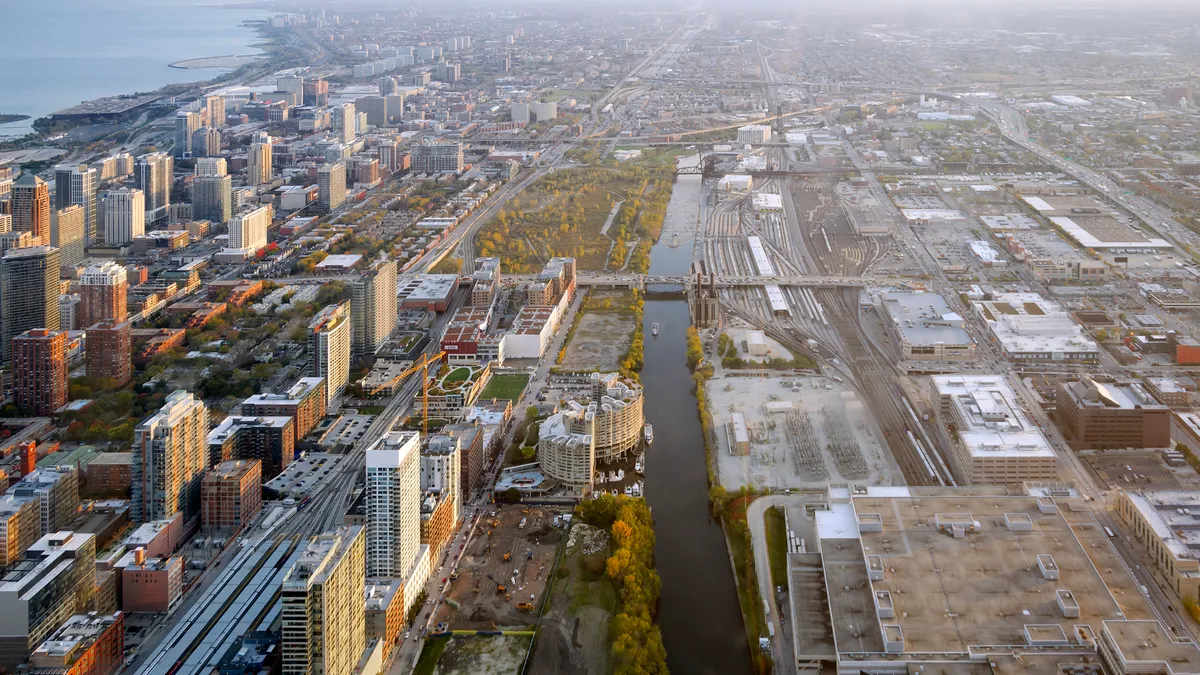Dive Brief:
- In a bid to make the Chicago region a climate technology hub, a coalition of public, private and civic groups last week launched an alliance to bolster climate tech-related economic growth.
- One of the Chicagoland Climate Investment Alliance’s first priorities is to apply for $1 billion in grants from an Environmental Protection Agency program that aims to help low-income, disadvantaged communities deploy clean energy technologies, according to alliance leader and economic development agency World Business Chicago.
- The $1 billion proposal is called the “Rust Belt to Green Belt Initiative,” an indication that the region is ready to move past the nickname it was given in the 1970s when a sharp decline in industrial jobs left many abandoned factories to rust.
Dive Insight:
The alliance comes as the Inflation Reduction Act funnels billions of federal dollars toward communities to tackle climate change and usher in a clean energy transition. But many of the funding opportunities for cities are through competitive grants that require time and technical expertise to apply for.
“There’s going to be a transformational opportunity for cities, and if we didn’t organize this effort, Chicago was going to be left with just table scraps,” World Business Chicago’s chief growth officer, Kyle Schulz, told Bloomberg. The alliance also includes the state of Illinois, city of Chicago, Invenergy, ComEd, Nicor Gas, Jones Lang Lasalle and Wanxiang America. Together, the groups have pledged $2 million to launch the effort.
A report released this month by World Business Chicago says the Chicago region’s green economy, which refers to the part of the economy devoted to clean energy, is growing at a faster rate than other top metro areas. The Chicago region’s green economy produced $18.4 billion in 2022, falling behind New York, Houston, Los Angeles and Dallas.
Along with seeking federal investment, the alliance aims to help accelerate local start-ups and create an “interconnected climate innovation ecosystem” through cross-sector programming, World Business Chicago said. The alliance also hopes to spur job growth, particularly in specialized sectors such as building decarbonization and materials-science innovations.












